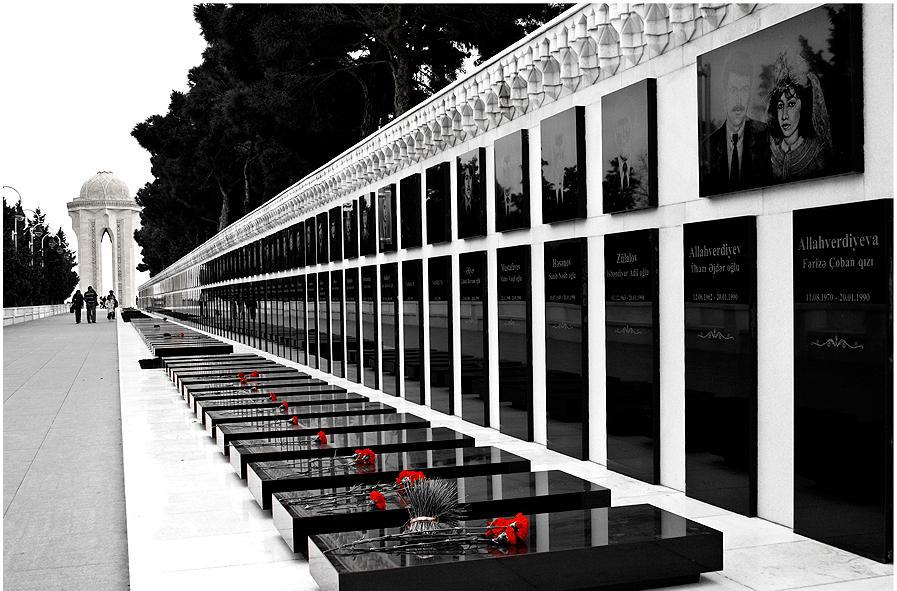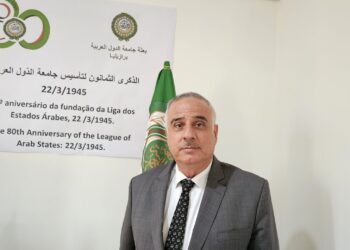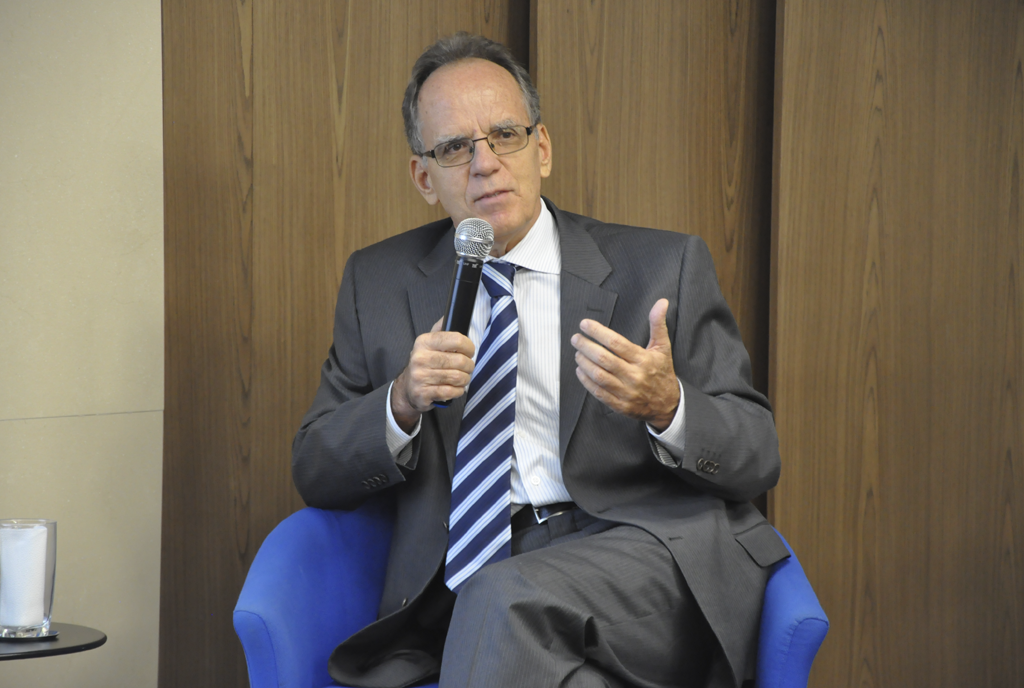This Sunday (20) the nation recalls the countless civilian deaths by the Soviet government during the “Black January”.
The Black January or January Massacre was a violent repression against a civilian population of Baku on January 19-20, 1990, in accordance with a state of emergency during the dissolution of the Soviet Union.
Soviet Communist Party Secretary-General Mikhail Gorbachev and Defense Minister Dmitry Yazov said military law was necessary to prevent Azerbaijan’s independence movement from overthrowing the Soviet government in that country. According to official estimates, 147 civilians were killed, 800 people were injured and five people disappeared. However, the unofficial number put the number of victims in 300 dead. Later in 1995 Gorbachev apologized to that nation, stating: “The declaration of a state emergency in Baku was the biggest mistake of my political career.” Black January is seen as the rebirth of the Republic of Azerbaijan. In Brasilia, the embassy of Azerbaijan released an official note on the date. See the full document:

29 years have passed since the January events of 1990 which went down in the history of Azerbaijan as Black January. Azerbaijani people still remember the tragic day of January 20 as if it happened yesterday.
Hundreds of civilians were crushed and injured by the Soviet troops in Baku during the night of January 19-20, 1990, based on a direct order from the USSR leadership that was trying to maintain the Communist regime in Azerbaijan and strangle the national liberation movement. Every year Black January victims are commemorated with great sorrow not only by the people in Azerbaijan, but all Azerbaijanis throughout the world.
The 70-year Soviet oppression against Azerbaijan culminated with the bloody tragedy on January 20, 1990. Late at night 26,000 Soviet troops and Special Forces called “Alfa”, without declaring a state of emergency, entered Baku and committed atrocities against the innocent Azerbaijani people. The invasion was launched at midnight and was committed with brutality; even children, women and the elderly were not spared. In total, as a result of the intrusion of troops into Baku and regions of the republic 133 people were killed, 611 wounded, 841 illegally arrested and five went missing.
Though the Azerbaijani people suffered military, moral and political aggression, they displayed their ability to maintain the traditions of historical heroism and resist the cruelest attacks for the sake of the freedom and independence of their motherland, even at the cost of their lives. The sons and daughters of the motherland perished on January 20, 1990 while defending the freedom and independence of Azerbaijan and with their bravery made history in the chronicles of heroism of our country.
After the January 20 events in Baku, National Leader of Azerbaijani people Heydar Aliyev, visited the permanent representation of Azerbaijan in Moscow and during press conference sharply condemned this brutality and called the allegiance a terrorist act against the people, democracy and humanity. The fact that the Great Leader made such a statement at a time when the Soviet Empire existed once more proved that great steps in politics were thrown by genius personalities. Under the decrees of the President of Azerbaijan Heydar Aliyev dated December 16, 1999, all the victims of the crackdown were dedicated the title “Martyrs of January 20”.

Nesse domingo (20) a nação rememora as inúmeras mortes de civis pelo governo soviético durante o “Janeiro Negro”.
O Janeiro Negro ou Massacre de Janeiro foi uma violenta repressão contra uma população civil de Baku em 19-20 janeiro de 1990, em conformidade com um estado de emergência durante a dissolução da União Soviética.
O secretário-geral do Partido Comunista Soviético Mikhail Gorbachev e o ministro da Defesa, Dmitry Yazov, afirmaram que a lei militar era necessária para impedir o movimento de independência daquela nação de derrubar o governo soviético do Azerbaijão. De acordo com estimativas oficiais, 147 civis foram mortos, 800 pessoas ficaram feridas e cinco pessoas desapareceram. No entanto, o número não oficial colocou o número de vítimas em 300 mortos. Mais tarde, em 1995, Gorbachev pediu desculpas ao país afirmando: “A declaração de uma emergência estatal em Baku foi o maior erro de minha carreira política”. Janeiro negro é visto como o renascimento da República do Azerbaijão. Em Brasília, a embaixada do Azerbaijão divulgou nota oficial sobre a data. Veja a íntegra do docuemnto:

29 anos se passaram desde os eventos de janeiro de 1990, que ficaram conhecidos na história do Azerbaijão como Janeiro Negro. O povo do Azerbaijão ainda se lembra do trágico dia de 20 de janeiro como se tivesse acontecido ontem.
Centenas de civis foram esmagados e feridos pelas tropas soviéticas em Baku durante a noite de 19-20 de janeiro de 1990, com base em uma ordem direta da liderança da União Soviética que tentava manter o regime comunista no Azerbaijão e estrangular o movimento de libertação nacional. Todos os anos, as vítimas do Janeiro Negro são lembradas com grande pesar não apenas pelo povo do Azerbaijão, mas por todos os azerbaijaneses no mundo todo.
A opressão soviética de 70 anos contra o Azerbaijão foi culminada com uma tragédia sangrenta no dia 20 de janeiro de 1990, na madrugada do dia 20/01, 26.000 tropas soviéticas e forças especiais chamadas “Alfa”, sem declarar estado de emergência, entraram em Baku e cometeram atrocidades contra o inocente povo azerbaijanês. A invasão foi realizada à meia-noite e foi cometida com brutalidade; nem mesmo crianças, mulheres e idosos foram poupados.No total, com o resultado da invasão das tropas em Baku e nas regiões da república, 133 pessoas foram mortas, 611 ficaram feridas, 841 foram presas ilegalmente e cinco desapareceram.
Embora o povo do Azerbaijão tenha sofrido agressão militar, moral e política, eles demonstraram sua capacidade de manter as tradições de heroísmo histórico e resistir aos ataques mais cruéis em prol da liberdade e independência de sua pátria, mesmo à custa de suas vidas. Os filhos e filhas da pátria morreram em 20 de janeiro de 1990, enquanto defendiam a liberdade e a independência do Azerbaijão e, com sua bravura, fizeram história nas crônicas do heroísmo de nosso país.
Após os eventos de 20 de janeiro em Baku, o líder nacional do povo azerbaijanês Heydar Aliyev, visitou a representação permanente do Azerbaijão em Moscou, e durante a conferência de imprensa condenou duramente essa brutalidade e chamou essa aliança de um ato terrorista contra o povo, a democracia e a humanidade. O fato de o Grande Líder ter feito tal afirmação numa época em que o Império Soviético existia mais uma vez provou que grandes passos na política foram dados por personalidades geniais. De acordo com o decreto do Presidente do Azerbaijão, Heydar Aliyev, de 16 de dezembro de 1999, todas as vítimas da repressão receberam o título de “Mártires de 20 de janeiro”.








